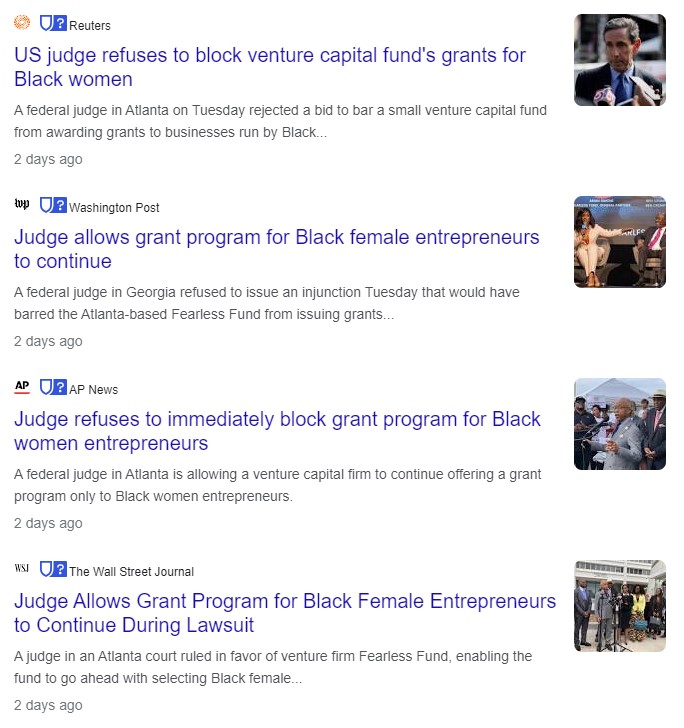Georgia Federal Judge Rules Racially Discriminatory Contracting Is “Speech and Expression” Protected By 1st Amendment – Emergency Appeal Filed
Emergency Motion for injunction pending appeal: “The district court said discriminatory contracting itself is protected speech. That line is one the Supreme Court has always been careful not to cross, as it would destroy the whole enterprise of antidiscrimination law…. But the district
court crossed it.”
Affirmative Action sure does make strange alliances. In this case, a desire to defend a grant program open only to black women may bring down the entire anti-discrimination legal infrastructure that has been in place for over 150 years, if a District Court ruling that racially discriminatory contracting is “speech and expression” protected by the First Amendment is not reversed.
The American Alliance for Equal Rights (AAER), a group formed by Ed Blum, whose Students for Fair Admissions won the Harvard affirmative action case, sued Fearless Fund in federal court for the Northern District of Georgia over a grant program open only to black women. The claim was brought under a post-civil war statute prohibiting discrimination in contracting, not under the Equal Protection Clause of the 14th Amendment (which arguably would not apply to a private investment company) or other discrimination statutes. You can read the Complaint and Motion for Preliminary Injunction.
Numerous civil rights groups filed Amicus briefs supporting the defendant and the black-woman-only grant program.

Under the controlling Eleventh Circuit authority of Coral Ridge Ministries media, donating money qualifies as expressive conduct and is entitled to First Amendment protection. That was not a 1981 case, but I have no reason to believe that the Eleventh Circuit would have decided the case any differently under Section 1981.
And the Plaintiff disagrees with that message. They want the Defendants to communicate a different message.
Well, that’s not the way it works. The First Amendment protects the Defendants’ right to decide what message they want to promote, and that’s what the First Amendment is all about.
So for those reasons, I’m going to deny the Plaintiff’s motion for a preliminary injunction and deny the Plaintiff’s motion for an injunction pending appeal.
As I said, I’ll get out a written order, hopefully, before the end of the week, but, in any event, as soon as I possibly can.
Wait, what? Did the judge really rule that racially discriminatory contracting is expression protected by the First Amendment? Can’t be, that goes against the entire body of law, and if true, would eviscerate a wide range of civil rights laws. So I awaited the written Order and decision before writing about this, surely he would correct that error when it came time for a formal ruling.
“Fearless Strivers Grant Contest”
Last edited:
